Coláiste na nEalaíon & na nDaonnachtaí
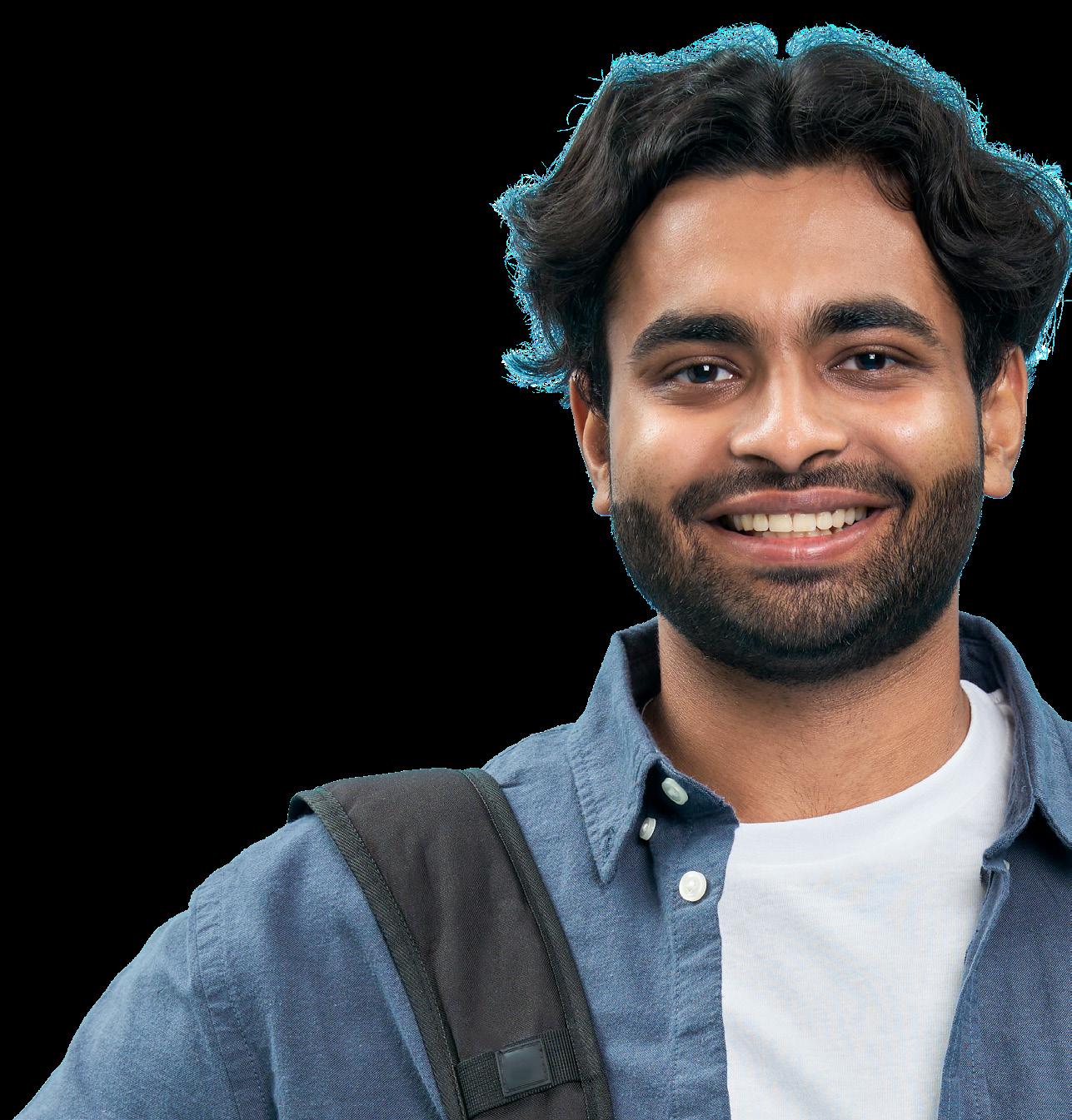




• Skills
• Employability
• Careers
UCD.ie/careers
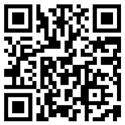

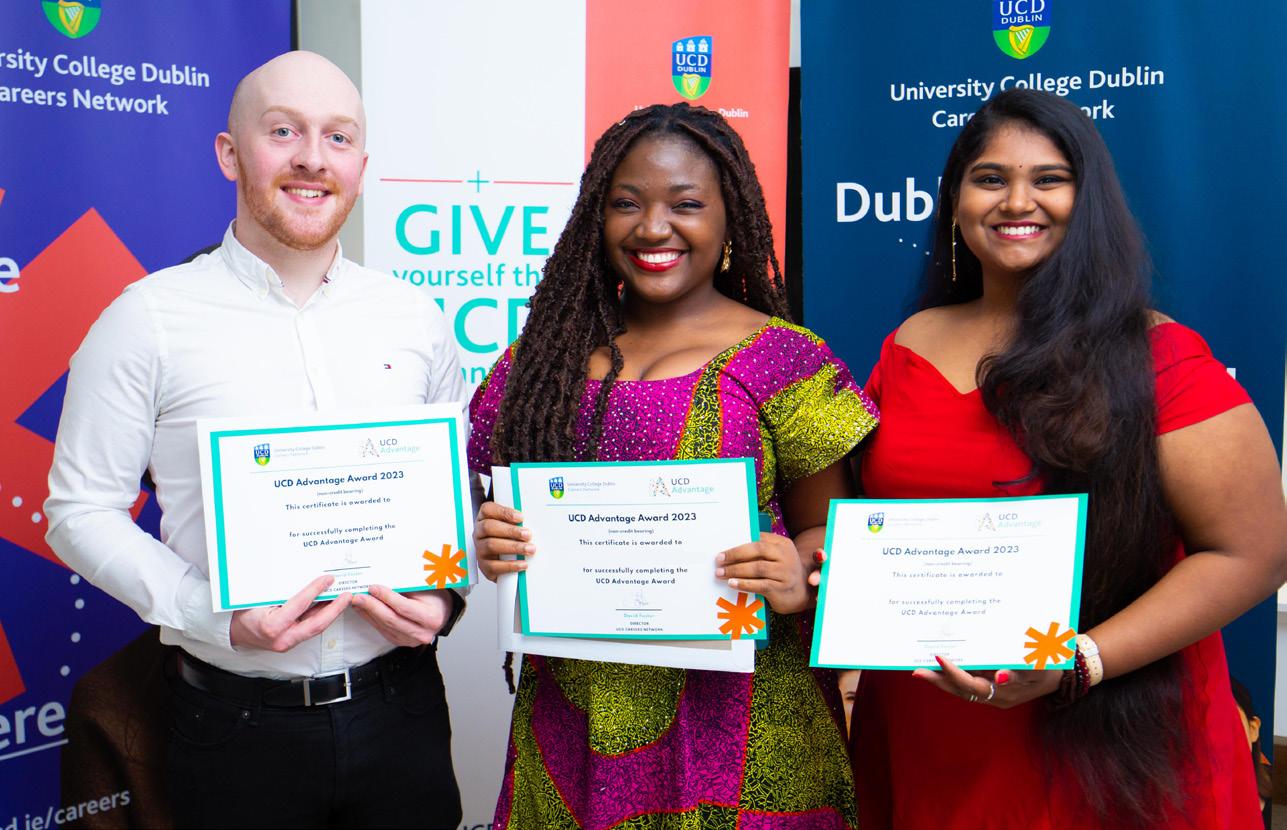

Coláiste na nEalaíon & na nDaonnachtaí





• Skills
• Employability
• Careers
UCD.ie/careers



100% of students would recommend UCD Advantage to a friend
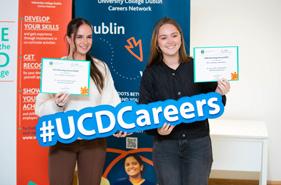

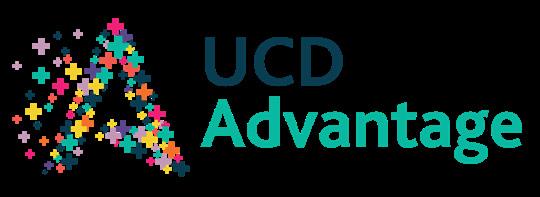
The UCD Advantage Award is your chance to get recognition from UCD for skills, knowledge and experience that you have gained through participation in co-curricular activities. Whether you are a part of a UCD Society or sports team, volunteer your time with a charity or have done a summer internship, UCD wants to acknowledge your contribution and development.
UCD students involved in co-curricular activities can apply. Your activities can range from clubs, societies, volunteering, internships, part-time work and hundreds more.
Completing the award helps you to articulate all the amazing transferable skills you have developed. Employers are looking for well-rounded students and UCD Advantage will help you stand out from the crowd. A great addition to your CV! SIGN ME UP!
Pre-register for the UCD Advantage Award on SISweb at any point during your time at UCD.


UCD Careers Network sets out to offer services to all students at UCD to enable them to consider and plan their future career. We do this in many different ways, for example, by offering career consultations, credit bearing modules in career development, non-credit bearing programmes and Awards such as the UCD Advantage and a sophisticated online platform called MyCareer, packed full of information, job vacancies, e-learning and AI assisted CV development and online practice job interviews. This guide illustrates one approach taken by your team of expert Career Practitioners at UCD Careers Network to bring to you a comprehensive career toolkit. Please use this career guide in conjunction with MyCareer which you will find at www.ucd.ie/careers
– DR. DAVID FOSTER, UCD DIRECTOR OF CAREERS, EMPLOYABILITY & SKILLS AND ASSOCIATE EDITOR OF THE BRITISH JOURNAL OF GUIDANCE AND COUNSELLING
At the front of this guide you will find information on how we can support you during your time at UCD and beyond. You will also find information and advice to help you successfully navigate the employment market, including how to get started on your career planning and how to make great job applications.
The second half of the guide has been tailored to the needs of students of your College. We will provide you with insights into the employment market, in addition to advice on building and articulating the key skills that employers look for in graduates. We’ll outline the career and employability supports available within your College and through a series of short profiles, showcase the great things that students and graduates of your College have been doing to progress along their chosen career paths.
We want this guide to be practical and suited to your needs, and maybe a source of inspiration and ideas.
As always, we would love to hear your feedback as we strive to continually improve our service, so if you have any feedback on this year’s guide or any suggestions for what we should include next year please drop us an email at: careers@ucd.ie
OK, let's start!
In addition to the supports and services provided by UCD Careers Network, gradireland.com is a source of helpful information and resources to assist you in your career planning. It has been developed collaboratively by a range of organisations including the Association of Higher Education Careers Services (AHECS), as well as universities across Ireland and the UK.

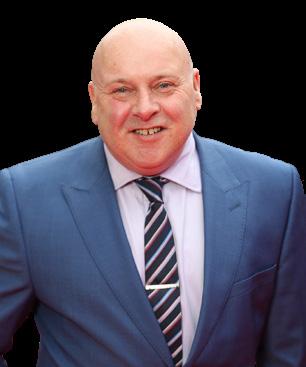
Dr. David Foster
UCD Director of Careers, Employability and Skills
Associate Editor of the British Journal of Guidance and Counselling
The team at UCD Careers Network is committed to enabling students, recent graduates and Postdoctoral Researchers to plan and achieve career success and prepare for life after university. There can be no doubt that the workplace is changing at a pace not seen before with AI transforming our thinking, workplaces and life more generally. The World Economic Forum in its report entitled “The Future of Jobs Report, 2025” indicated that 85% of the employers surveyed planned to prioritise upskilling their workforce, with 70% expecting to hire staff with new skills, 40% planning to reduce staff as their skills become less relevant, and 50% planning to transition staff from declining to growing roles. The result is that today’s graduates more than ever before, need a “can do”, “can adapt” attitude with reskilling and upskilling set to become the norm for those active in the workforce. UCD Careers Network can help students, across the university prepare for and thrive in work and life after programme completion.
The Graduate Outcomes Survey, 2023 (the last year for which data exists) shows UCD graduates performing well in the jobs market with 79.03% in employment, 13% in Further Study and Training, 6.14% seeking employment and 1.83% not available for employment. While the statistics are encouraging for career success and progression, take time to engage with the services, programmes and co-curricular awards organised by staff at Careers Network to develop your career and self-awareness, skills, attributes, and opportunities to meet leading employers of interns and graduates.
While the world will never stop changing, with thought and by making use of resources available at UCD, you will succeed and hopefully, stay connected to UCD though our Alumni associations.

Michelle Coen Career & Skills Consultant
This guide will help you identify the events and supports available to you during your time at UCD. As the Career & Skills Consultant for the College of Arts and Humanities, I have designed an extensive programme of career related events and workshops to enable you to develop the skills and knowledge required so that you can make an informed decision about your future career. You might be interested in taking a credit bearing module such as Career Readiness in Arts (HUM20010) or Career Readiness in Humanities (HUM20030) to help you explore your career options? These modules enable you to take ownership of your career development and career action plan as well as develop employability skills. I deliver a number of workshops in Newman on interview skills, LinkedIn, career management and skills development. I also host regular virtual and live alumni panel events where graduates from the College of Arts & Humanities talk about their careers to date. Follow the UCD Careers Network on our social media channels to keep up to date on the wide variety of career events taking place over the next academic year.
I have great memories from my own time in Newman, I studied Social Science here at UCD before completing a Postgraduate Higher Diploma in Human Resource Management. I believe learning continues right throughout your career and I have continued to develop my skills since leaving UCD. I have a Diploma in Coaching, as well as a Diploma in Media & Communications and a Certificate in Training and Development and recently completed the Postgraduate Higher Diploma in Career Education, Information and Guidance at the University of Warwick and a PG Cert in University Teaching and Learning. Prior to joining UCD, I worked for a number of years in Recruitment, HR Management and Learning & Development. I am passionate about empowering students and ensuring that they receive the support and information they need to make the right career choices and develop their career potential.

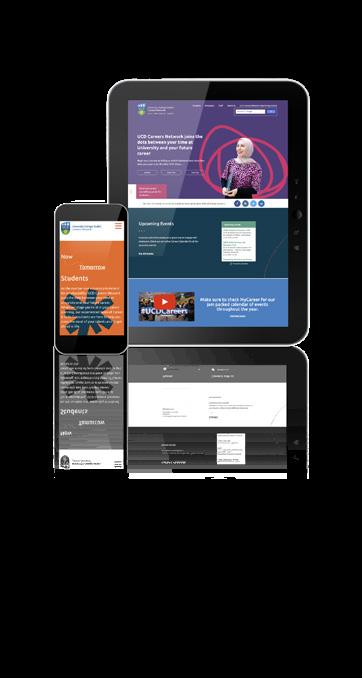
Take a look at our website www.ucd.ie/careers/ We hope you like it!

As the number one university in Ireland for employability, UCD Careers Network joins the dots between your time at university and your future career. Whatever stage you’re at in your career, our experienced team of Career and Skills Consultants are here to help you make the most of your talents and to help you get ahead. Whether you’re an undergraduate or graduate student, it’s never too early to ask for help. We can help you to discover more about yourself, navigate the complex job market and introduce you to employers through our extensive network.


MyCareer is a content-rich careers management platform featuring interactive tools, e-learning content and the latest job opportunities. It is designed to help you navigate today's job market and move your career forward with confidence.
This online career management platform is also your one-stop-shop for events, career information and 1-2-1 career appointments. You can access MyCareer via UCD Connect or the UCD Careers Network website.
“Very helpful, friendly and welcoming staff."
"Highly professional, focused and informed service."
"Wonderful service and very beneficial to students. Informative, approachable and helpful. True advocates of students."
"Excellent service...helped me make a plan in 5 minutes, priortising my goals. This was an extremely reassuring process for a nervous final year student."
"Really helpful and insightful, making the application process more accessible."
Are you confused about the career paths available to you after graduation? Get inspired with MyCareer’s ‘Exploring Careers with My Degree’!
A new set of resources are now available on MyCareer to help you explore career pathways specific to your college and degree. These custom school pages have been developed by our expert Career Consultant team for each of UCD’s six colleges - including tailored content for your degree.
Whether you’re just starting to consider your options or actively planning your next steps, this is your go-to guide for discovering where your degree can take you.
Each page is packed with degree-specific content to help you navigate career planning. From career path overviews and real job profiles to alumni insights, networking opportunities, and targeted career support on offer, you’ll find everything you need in one place. Simply log into MyCareer, go to the Career Exploration tab, choose ‘Exploring Careers with my Degree’ from the dropdown menu and select your college and school to start exploring careers today.
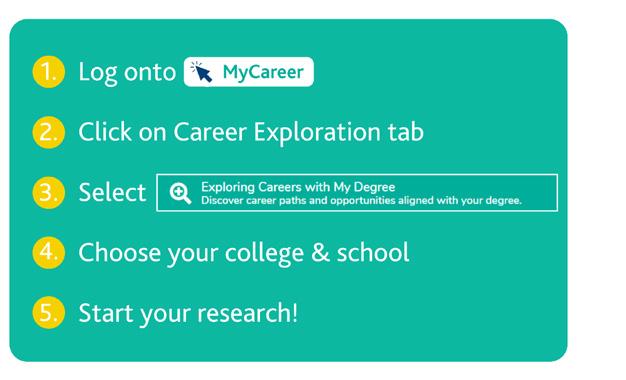

CV360 scores your CV against more than 50 checks that commonly annoy a hiring manager. You get instant, detailed feedback so you can optimise your CV and significantly boost your chances of getting to interview stage.
Interview360 features a range of mock interviews you can take to really test your ability to come up with strong, confident, well-thought-through answers under time pressure. You’ll get instant feedback and advice, and every question you answer will make you a stronger candidate.
There's a huge range of resources on our MyCareer platform, so if you're not sure where to start, take the CareerEDGE+ profile quiz. CareerEDGE+ is a personal development tool that should help you to identify possible areas for development over the next year.
Whether you are beginning your career, have many years of experience or are unsure of your career direction, reflecting on your motivations, preferences, values and working style can be useful when considering your current role and desired career path. MyCareer hosts a wide range of assessments including Personality Insight, Motivation at Work, Management Skills and Strengths. The assessments take 10-15 minutes each to complete. At the end of each assessment you can access your personal report, with practical, tailored, recommendations to apply to the workplace.

Whether you have no plan, some plan or a clear plan, we can help you figure out the next steps. Check out the interactive career planning tool on our website for tailored tips and advice. If you would like to speak to a Career and Skills Consultant, sign up for a 20 minute career coaching session via MyCareer.
Our Career and Skills Consultants deliver a range of engaging and interactive modules, workshops and seminars for students across all disciplines and stages. These cover everything from developing a stand-out CV or perfecting your interview techniques to developing the key skills that graduate employers are seeking, like leadership, teamwork, presentation skills, commercial awareness etc. Check with your Programme Office to find out about bespoke career development and employability support in your area or contact your Career and Skills Consultant
We advertise thousands of graduate and internship opportunities. Check out the vacancy portal on MyCareer and follow us on Facebook, Twitter, LinkedIn or Instagram to get up to date notifications of exciting new opportunities. If you are considering an internship in the USA, we’ve also got you covered! Check out our comprehensive database of US internship opportunities; CEI Internships.
We will be holding our usual recruitment fairs; Business Finance & Management; Science, Engineering & Technology; Law and Internship. We'll also hold a range of recruitment events featuring the top graduate employers and insightful sectorbased panel discussions. With employers from across all sectors, there really is something for everyone and countless opportunities to connect and grow your network.
We are active across a range of social media platforms. We use these to promote opportunities and events and generally keep you up to speed on all things careers and employability related. Follow us to stay in the loop. In addition to helping you connect with employers, we also work to ensure you are well-prepared to bag that internship or graduate job. Get your CV and cover letter in shape by using the tools and resources on MyCareer and then have one of our team look over them at a 1-2-1 consultation. Attend an interview skills workshop, practice your interview performance and get valuable personal feedback.
We know that getting started can be stressful and taking those first steps can be daunting. Rest assured that you are not the only one who is unsure about what to do next and we are here to help you move forward from wherever you are currently.
It’s never too soon to engage with us – whether you are in first year or final year, the sooner you make contact, the more we can do to help.
We have developed an interactive career planning tool, aimed at helping you move forward. All you need to do is think about where you are currently in relation to career readiness – do you have no idea what you want to do or how to go about it? Or do you have some ideas but there are gaps you need help filling in or maybe you are very clear on what you want but would value a sounding board.
Wherever you are at right now, just go to the Careers Network website, choose the option that best reflects your current state of career readiness (No Plan, Some Plan, Clear Plan) and you will receive a set of tailored suggestions for supports, resources and activities that can help you move forward.


We know you are busy and there is a LOT happening, particularly in trimester 1...BUT here are a few key dates for your diary. Please note that these are the highlights - for the full event listings, including details of times, venues and registration information, make sure you check out MyCareer. New events are being added to our MyCareer calendar all the time, so don’t miss out!
UCD Careers Network Open Day – 17th September 2025
Meet the team and find out all the ways we can help you during your time at UCD, and beyond! We have a range of activities and competitions planned on our Instagram page. Follow us here!
UCD Science, Engineering & Technology Fair – 29th September 2025
This fair is about all things STEM, from IT to Pharma to Engineering Project Management. If you are interested in a Science, Engineering or Technology related career, sign up on MyCareer today!
UCD Business, Finance & Management Fair – 30th September 2025
This fair is for anyone who is interested in a career in Business, Finance, HR, Marketing, Management, Accounting, etc. Top graduate employers are interested in meeting students across all academic disciplines, so whether you are studying Ag. Science or Arts (or anything else) come along to find out about the exciting opportunities on offer.
UCD Law Fair – Wednesday 1st October 2025
Did you know that Law firms recruit students from across all academic disciplines? You don’t need to be studying Law to pursue a career in Law. Meet some of the top Law firms in Ireland, the UK and further afield. Join on the day to see if a career in Law is right for you.
UCD Michael Smurfit Graduate Business School Career & Internship Fair –Tuesday 21st October 2025
If you are a Smurfit student who is interested in working in Accountancy or Consulting this is the event for you!
UCD Internship Fair – 21st January 2026
Internships are a fantastic way to gain work experience and find out whether a particular company or sector is right for you. Lots of UCD programmes have built-in academic internships but lots of students also do summer internships. Join to meet employers, across a variety of sectors who have exciting summer opportunities on offer.
Student Orientation Week & Freshers Week – 3rd - 5th September 2025
If you are new to UCD, Orientation week is a great time to find out all you need to know. Keep an eye on our social media pages for events popping up over the week!
Essential Career Skills – Trimester 1 2025
Essential Career Skill workshops are a great way for you to get started on your career journey. These short workshops take you through: Career supports that are available to you at UCD and how to use them; Ways to build your skills; Setting up a LinkedIn profile; What to include on a CV/Cover Letter; How to prepare for an interview.
Skills Programme – Trimester 2 2026
The Future Skills Programme is an 8 week programme of employer-led, interactive workshops, covering topics ranging from resilience to technological literacy - based on the key skills employers have identified as being crucial to success (World Economic Future of Jobs Report, 2023). On completion of the programme, including a related reflective assignment, you will be awarded a certificate of completion – another great achievement to add to your CV!
Leadership
• Chairing a student society or a committee
• Captaining a sports team
• Taking responsibility for organising an event
• Being a team leader at work Initiative
• Writing your own blog
• Finding creative ways to raise funds as a volunteer
• Participating in student competitions
Adaptability & Flexibility
• Combining study and part-time work
• Travelling or studying abroad independently
• Managing multiple extra-curricular activities
Teamwork
• Actively participating in student projects
• Commitment to a team-based sporting activity
• Ability to work with others successfully in your part-time job
How can you develop your skills? If you are not sure where to start, check out the Core Skills Courses on MyCareer. It is important to begin building experiences and skills to complement the skills you are developing in your degree.
Planning & Organisation
• Arranging travel itineraries
• Managing competing demands on your time – studies, part-time work and other commitments
• Organising fundraising and other events
Problem Solving
• Overcoming obstacles to achieve a personal goal
• Finding creative solutions to workplace problems
• Participating in student problem-solving competitions
Commercial Awareness
• Keeping up to date with business papers, magazines and social media activity for businesses you're interested in
• Joining relevant student societies e.g. Investors & Entrepreneurs Society
• Learning about the business in your part-time job
Oral Communication
• Giving presentations as part of your course
• Becoming a UCD Peer Mentor or Student Ambassador
• Running a meeting or event
• Dealing with customers via your part-time work
There are ample opportunities at UCD to develop skills through involvement in clubs, societies, work experience, mentoring and volunteering. You can also use your co-curricular activity as the basis for an application for the UCD Advantage Award.


Stand out from the crowd
At the Careers Network, we meet lots of students who are doing great things but struggle to articulate the development they have gained. For example, you may be a great Peer mentor, Class Rep or Student Ambassador but you don't know how to communicate the value of this to a potential employer in your CV or at an interview? If this is something you struggle with, then check out the UCD Advantage Award.
UCD Advantage formally recognises the skills, knowledge and experience that UCD students gain through participation in co-curricular activities, on and off-campus. Participation will encourage you to expand the breadth of your co-curricular activity and get involved in things that you may not have considered previously. This can open up a world of opportunity in terms of meeting new people, experiencing new situations and developing a whole host of new skills. Crucially, it will also help you to effectively articulate your skills, attributes and experience, in applications and at interviews.
Recipients of the UCD Advantage Award will be presented with a digital certificate once their application is approved. The digital certificate can be added to their LinkedIn profile and CV. The physical certificate will be awarded to the achievers at a felicitation ceremony and the UCD Advantage Award will appear on their Diploma Supplement at graduation. The Advantage Award can be listed in the “Achievements'' section of the CV.

100% of students would recommend the UCD Advantage Award to fellow students. You can register for UCD Advantage at any time, quickly and easily via SISWeb. For more information go to: www.ucd.ie/careers/advantage
Here’s what Advantage Award Achievers have to say about the experience.

Ada Ruohonen, BSc Politics and International Relations and Philosophy,
"The UCD Advantage Award was a great way to look back on my experiences and reflect on the transferable skills I had learned by taking part in these activities. It also allowed me to understand what future employers might be looking for when applying for a new job. Overall, the award was a great way to think about my achievements and be proud of myself! Advice for Students: I would absolutely recommend taking part in the UCD Advantage Award. It is a wonderful opportunity to get recognition for tasks that might otherwise go unnoticed. Besides, it is a great way to come to realise how much you have learned by taking part in extracurricular activities, and how they have been incredibly beneficial in improving your transferable skills for the future. Overall, it is absolutely worth the effort!"

Richard Otroshchenko, BA Economics
"Having an incentive to seriously reflect on my experiences was the most valuable part of the award. I was able to put into words how my involvement in UCD helped develop both my personal and professional skills. I believe that my ability to clearly express all the challenges I faced as Class Rep was a key contributor to me securing an internship for the Summer. Advice for Students: I would absolutely recommend the UCD Advantage Award to anyone who wishes to stand out from the crowd when searching for internships.Additionally, my activities have also allowed me to make new friends and experience new things. Just don’t feel restricted to doing only two activities; there’s every reason to get involved in as many things as you’d like!"
1004 students achieved the Advantage Award in the academic year 2024/2025.
It’s likely that for many of you, the working environment you enter upon graduation will be entirely different to the environment that existed when you entered university. In the space of a few years, the world of work has changed rapidly, without precedent. The pandemic accelerated recent trends in remote working, AI, MedTech, e-commerce, automation and edtech. According to the Professional Services Firm PwC, “today we are living in an era of fundamental transformation in the way we work.”
Not since the Industrial Revolution have organisations had to think about where, when, and how employees undertake their roles.
The concept of a five-day, 40-hour work week at a fixed location is nearly a century old. It was invented by Henry Ford in 1926 to serve manufacturing plant assembly lines. It’s possible that the working environment you enter will still be in a state of flux as organisations and entire sectors continue to adopt new ways of working such as remote, hybrid, flexible working, or agile working practices.
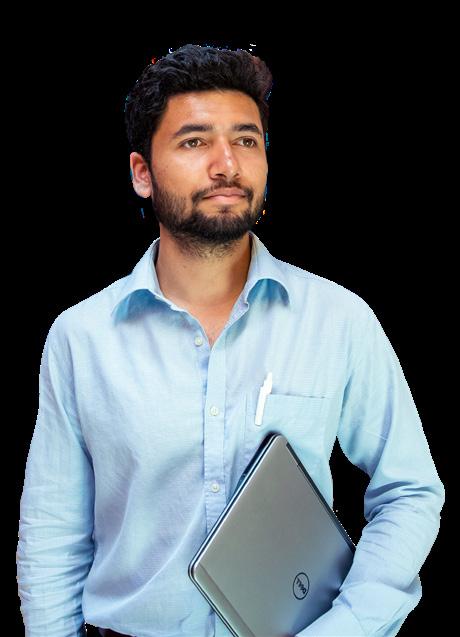
One of the most important skills you will need is adaptability. It is essential for navigating the changes ahead. It’s impossible to entirely predict exactly the skills that will be needed even five years from now, so organisations and employees need to be ready and able to adapt to rapidly changing patterns of work, working structures, use of technologies and AI as well as the impact of geo-politics and climate change.


Some of the below terms are now widely used in job advertisements for internship or graduate roles so be sure you have a clear understanding of the company work practices before applying. Check out the list below to familiarise yourself with these terms.
A remote employee is someone who is employed by a company but works outside of a traditional office environment. This could mean working from a local coworking space or from a home office.
A hybrid working model is when an employee works part of their time in the workplace provided by their employer and part of their time from home or anywhere else other than the normal place of work. Also referred to as e-working or flexible working.
Agile working is a way of working in which an organisation empowers its people to work where, when, and how they choose. It is generally agreed with your line manager and may differ across teams in an organisation.
Here are our top five tips for putting together an impactful application:
1. Start by analysing the job advert so that you have an in-depth understanding of the recruiter’s requirements.
2. Always tailor your CV to show that you meet the employer’s needs by matching your skills and experience to their stated requirements.
3. Prove that you are a strong candidate by giving examples of your skills and achievements.
4. When assessing the content of your CV ask yourself ‘so what?’ after each statement. If it isn’t really saying anything or is not relevant, does it have a place on your CV?
5. Don’t cut corners when it comes to your cover letter. This is an important part of your application as it allows you to demonstrate your particular interest in the organisation and role, and shows that you’ve done your research!
Your CV and cover letter or your online application form are your sales and marketing tools. The quality of your application determines whether or not you get an interview. This is your opportunity to highlight your strengths, skills and experience to a potential employer and set out what makes you a great fit for the role. Tailoring your CV, cover letter or application to the requirements of the role is critical – a “one size fits all” approach won’t do you any favours.
Reviewing the e-learning content 'CVs and Applications' on MyCareer is a great way to get started. It will quickly bring you up to speed on the essentials of putting an impactful CV and cover letter together. You can also attend one of our effective applications workshops. Check with your Career & Skills Consultant to see if there's one scheduled for your particular programme.
When you have a draft you are reasonably happy with, use the CV360 tool on MyCareer to receive instant feedback and advice to improve your CV. If you need further support tailoring your application, you can book a 1-2-1 consultation and get some expert advice and feedback from one of the team.
Your cover letter should be in formal letter format and no more than one page in length. It should address the following points:
• Introduction/why you are writing
• Summary of your key skills and experience relative to the role (this should compliment what's in your CV, not repeat it verbatim). Outline why you are a great fit.
• Why you want this job or to work for the company? Show your enthusiasm and demonstrate that you have done your research.
• Closing/sign off

Heading
Personal Profile
Summary (optional)
Education
Work
Experience
Skills Section (optional)
Interests & Achievements
References
Final Checks
• Does your name appear in bold at the top of the page (not the words; Curriculum Vitae)?
• Are your contact details, including phone number and email address, clearly visible under your name?
• Is it concise, tailored and relevant to the specific role you are applying?
• Is it specific and evidence-based as opposed to generic or clichéd?
• Have you clearly stated your qualification titles, institutions attended and start and end dates?
• Have you included your current GPA/expected award classification?
• Have you included a select number of the modules most relevant to the specific role?
• Have you mentioned any project you have completed that is relevant to the specific role?
• Have you listed your most recent qualifications, before listing older qualifications e.g., your Leaving Certificate?
• Have you clearly stated the job title, company/organisation name and stated start and end dates?
• Have you outlined your key responsibilities (not a task list) and achievements using bullet points?
• Does each bullet point start with a strong action verb and give specific details, including metrics where possible?
• Have you clearly articulated skills and experiences relevant to the role you are applying for?
• Have you listed your most recent job first and then worked back?
• Have you included only skills that are relevant to the role you are applying to?
• Have you backed up your claims with specific evidence and examples?
• Do you provide specific information where possible e.g., levels of language proficiency, IT software packages, coding languages, etc.?
• Do the interests/achievements included demonstrate relevant transferable skills?
• Have you included relevant voluntary work, society memberships or sports teams?
• Have you included membership of any professional bodies or relevant organisations?
• Have you either stated “References available upon request” OR given referees’ names, job titles and contact details?
• If you have given referees, is one an employer and one an academic lecturer?
• Is your CV 2 pages or less?
• Is it easy to read e.g. font size 11 or 12, with clear headings and subheadings?
• Have you used bullet points instead of paragraphs?
• Have you avoided generic statements and instead used specific examples to support claims?
• Have you had someone else proof-read it?
If you are invited to interview it means that ‘on paper’ you seem like a good fit for the role and the employer would like to validate this by finding out a bit more about you. An interview also provides you with the opportunity to evaluate whether the organisation and role are right for you.
Preparation is essential. The more prepared you are, the more confident you will feel. Be sure to research the job and the organisation thoroughly, using resources such as the company website, annual reports, LinkedIn, Google News search etc. Try to anticipate the questions you might be asked, especially about the skills and experience needed; how you will respond to these and what evidence you can provide to convey your suitability. Prepare examples to demonstrate your key strengths and competencies.
Find out who will be interviewing you, how long the interview will last, and whether there will be any tests or other selection methods. Before the interview, review your CV or application so you’re clear on what you wrote and are ready to discuss it in more detail. Make sure to check the ‘Interviews’ e-learning on MyCareer for practical tips, important dos and don'ts, and advice on handling different interview types so you can put your best foot forward.
Interview360 features a range of mock interviews you can take to really test your ability to come up with strong, confident, well-thought-through answers under time pressure. You’ll get instant feedback and advice, and every question you answer will make you a stronger candidate.
Dress for success: Even if the workplace is casual, wear professional attire.
Breathe: It’s normal to feel nervous. Try deep breathing exercises to calm yourself.
Greet confidently: Smile, offer a firm handshake, and maintain good eye contact. Show energy and enthusiasm.
Listen carefully: Don’t be afraid to ask for clarification on any of the questions asked.
Watch your body Sit up straight and maintain good posture. language:
Stay calm: Take a moment to think and compose yourself before answering tricky questions.
Prepare questions: Have a couple ready to ask the interviewer at the end to show your interest in the company and role.

Many interviews are now competency-based. These questions ask you for specific examples that demonstrate key skills such as teamwork, problemsolving, commercial awareness, or leadership. They often take the form of:
• “Tell me about a time when you worked effectively as part of a team.”
• “Give me an example of a challenging problem you solved.”
• “Have you ever led a project? Tell me about that experience.”
When faced with these questions, remember:
1) Use a specific example. Don’t talk about what you would do or usually do. Prepare a set of examples that clearly show the competencies the employer is looking for.
2) Use ‘I’ rather than ‘We’. Saying “We did xyz” makes it unclear what you actually did. The interviewer needs to see your personal contribution, so use the first person.
3) Use the STAR approach (Situation, Task, Action, Result). This helps you answer clearly and with structure.
- Situation: Give brief context and background so the interviewer understands your example.
- Task: Describe your role or what was required of you, keeping it concise.
- Action: Focus on this part. Explain in a logical, structured way the steps you took to achieve the goal. Use “I”.
- Result: Share the outcome. Aim for positive results that show your impact. You can also mention what you learned and how you'd apply it in the future.
Using these tips will help you deliver clear, strong answers that demonstrate the skills employers want to see.
Over one third of UCD students maintain part-time work alongside their degree. Part- time work can be very useful, for generating income for yourself - as well as building transferable skills.
Consider what hours you can work, be realistic about how much time you can offer that won’t affect your studies. International students should also ensure they understand how many hours a week they are entitled to work.
Narrow down the sectors you will prioritise in your search by considering the transferable skills you may gain from different types of part time jobs. This could range from e.g. developing commercial awareness through retail work, customer service skills through hospitality, administrative or IT skills through office based work or customer support.
To get started, there are a number of websites you can visit:
• UCD Students Union Job Board - advertising on and off campus part time work
• MyCareer Vacancy Portal - advertising graduate, internship and part time roles (filter by PT Work)
• UCD Careers Networking LinkedIn Newsletter – Subscribe to keep up to date on opportunities for UCD students
• LinkedIn Jobs – filter by part time/entry level
• Indeed, Jobs.ie, Monster.ie - national jobs boards with PT filters
• Work At UCD Job Board - mainly advertising full time roles within UCD, but can occasionally also advertise contract and part time opportunities
Consider going directly to employers who are not advertising. It can be simplest to print a copy of your CV and just walk in with it (when they aren’t busy). Use your network to find out about opportunities that may not be advertised. Consider applying to roles based on the UCD campus. For hospitality work, there are over twenty coffee shops and restaurants on campus.
There are some paid campus leadership roles that may offer a small number of regular hours: UCD Residential Assistants, Student Library Guides, UCD Global Guides, UCD Career Ambassadors, UCD Student Ambassadors, UCD Science Student Leader, and UCD Access Student Leaders.
Some Schools offices have Research Assistant roles available for suitable students. Similarly tutor roles within the UCD Writing Centre, the UCD Maths Support Centre or the UCD Computer Science Centre may be a fit for students with specific skill in these areas, such as PHD students.
Edit your CV specifically for part time roles. Include a brief profile at the top outlining your availability, relevant skills or experience.
For more information on CV’s, check out our CV resources on MyCareer including CV360 to get instant feedback on your CV, and then book a 20 minute appointment with our Career Consultants to have your CV reviewed.
Did you know you can book an appointment with UCD Careers Network to have your LinkedIn profile reviewed?
The average social media user spends 2+ hours per day across social media applications. Imagine if you could use even 10% of this time to enhance your career journey, with little effort. Well, you can take the next steps…
First steps…
• Follow companies or accounts of interest on LinkedIn, Facebook, Instagram, Twitter & YouTube.
• Follow services that can support your career development such as; UCD Careers Network, GradIreland, NextStepSupport and Prospects.
• Make sure your own social media profiles are ready to be viewed by a potential employer. If not, consider keeping them private.
• Join LinkedIn and update your profile to reflect your CV.
• Connect with your in-person network on LinkedIn, including classmates, colleagues, and friends.
Next steps...
• Follow company social media accounts to hear about their updates, products, projects and upcoming opportunities. As you scroll, you’ll be picking up nuggets of information that will help you learn more about the company and sector.
• Save posts that you find particularly interesting. You can revisit these when preparing a future application, to be easily reminded of recent company news or anything that captured your interest.
• Connect or follow people who are working in roles that interest you. You’ll get a sneak peek into their daily working life and a better idea of whether it could be the right path for you. ‘Virtual’ work shadowing could be just a tap away! @dr_niamh_shaw, @drsarahjmurphy, @pintofscienceie to name but a few!
• Subscribe to YouTube accounts that are using their platform to educate, such as Science Foundation Ireland, Engineers Ireland, RIAI (Architecture), National Gallery of Ireland and Creative Careers
• On social media, follow hashtags. Keep an eye on #IrishJobFairy for part-time roles. If you’re interested in design follow #AdobeIllustrator or studying Agricultural Science, then why not follow #Agriculture?
• Share your passion. If you could be the next Mary Berry or Joe Wicks, why not use your social media to showcase your talent or passion? This could be a brilliant example of your communication skills to talk about on your CV or during your next interview! You could also take Google’s free Digital Garage course on digital marketing to learn how to build your own personal brand.
• Share your work and professional development on LinkedIn. Whether it’s a certificate you’ve earned or you’ve taught yourself how to use new software, be sure to let your connections know.
• Don’t spam people, always be polite and provide a personal message providing context when connecting with alumni or employers.
• Check your privacy settings, make sure you’re aware of just how much a potential employer could see with a quick google search!
• Be mindful that everything you post online could stay there forever. Think before you post or endorse.

Final Checks
• Have you included a head and shoulders photo of yourself, posed against a plain background?
• Are you smiling, looking at the camera and dressed professionally?
• Are you the only person in the photo?
• Does your headline correctly reflect your current situation (e.g. Final Year Computer Science Student & Aspiring Research Analyst)?
• Have you included a brief summary written in the first person, highlighting your key strengths and motivations?
• If you are targeting a specific sector, have you included your goals and tailored your summary to this sector?
• Have you included any additional training or certifications (e.g. Certificate in Project Management) that are relevant to the sector you have chosen to work in?
• Have you listed your most recent qualification first, before listing older qualifications?
• Have you clearly stated your qualification titles, institutions attended & start and end dates?
• Have you listed the modules completed that you think would be of most relevance to the sector you wish to work in?
• Have you mentioned any activities or societies you are engaged with in University?
• Have you listed your most recent job first and then worked back?
• Have you clearly stated the job title, organisation name & start and end dates?
• Have you outlined your responsibilities and achievements using bullet points?
• Does each bullet point start with a strong action verb and contain specific details (e.g. numbers, software used, outcomes)?
• Have you included details of any volunteering roles you have participated in?
• Have you listed at least 5 skills, which your connections can endorse you for?
• Have you searched job descriptions of interest to identify key skills to be included?
• Have you requested a recommendation from a previous employer (if available)?
• Have you included any organisations you are part of?
• Have you listed any honours or awards you have received?
• Have you included the title of (& if possible, a link to) any relevant projects completed?
• Have you listed any additional languages you speak?
• Have you added your job preferences?
• Have you added links to any relevant examples of your work e.g. pdfs of abstracts, projects on websites such as GitHub, writing samples from your blog, images of design work from Instagram etc.?
• Have you claimed your personal URL by clicking “edit public profile and URL” in the upper righthand corner of your profile?
• Have you reviewed the LinkedIn Profiles of people in roles of interest to you, to better tailor your own?
• Have you had someone else review your profile?
Arts & Humanities graduates are employed in a broad range of sectors including; media, HR, marketing and PR, law, banking, foreign affairs, cultural and creative sectors, public sector, international business and increasingly, in ICT, where critical, analytical, research and problem-solving skills are valued.

Checklist – which skills have you developed? 1
Research
Critical analysis
Communication
Planning, organising and prioritising work
Problem solving
Team work & collaboration
ICT
Creativity
Global Skills (Languages, Social and Cross Cultural Skills)
Commercial Awareness Initiative & Drive
Leadership & Responsibility
Adaptability
Resilience
Entrepreneurial Flair
1 The right skills: Celebrating skills in the arts, humanities and social sciences, British Academy for the Humanities and Social Sciences (2017); pg 11.
Check out the range of 'E-learning' skills courses on MyCareer.
As an Arts & Humanities student you will develop a wide range of skills during your time at UCD:
Succinct and persuasive written and verbal communication
Expertise in content analysis and research
Creative problem-solving and collaboration skills
Ability to identify connections across complex problems
The British Academy’s report ‘The Right Skills’ identifies a common core of skills shared across Arts & Humanities, that can be grouped into 3 categories:
Communication and Collaboration: Being able to communicate clearly and concisely with others, developing persuasive arguments, tailoring your message to the audience and working effectively in multi-disciplinary teams.
Research and Analysis: Designing research and collecting evidence; manipulating information and data; applying qualitative and quantitative methods of analysis; and critically interpreting, assessing and evaluating findings to reach conclusions.
Attitudes and Behaviours: Characterised by problem solving, creativity and adaptability.

It is important to remember that whilst graduates from other disciplines may possess these skills, Arts & Humanities students stand out for bringing the ‘human’ element that is so important.
The skills that you are developing over the course of your Arts & Humanities degree are applicable across a wide variety of roles, enabling you to compete for graduate roles in communications, education, the public sector, financial services, media, marketing, advertising and PR, public policy and foreign affairs, international business, research, arts, NGOs and charities.
Predicting what the future of work will look like is difficult, but Arts & Humanities graduates are well placed, both to shape the future and to take advantage of the opportunities the future will present. The ability to understand and interpret the world around us developed through the study of Arts & Humanities is an essential feature of life in the 21st century. In an increasingly global labour market; language skills, intercultural understanding and a global mindset will be a crucial feature for the economy.
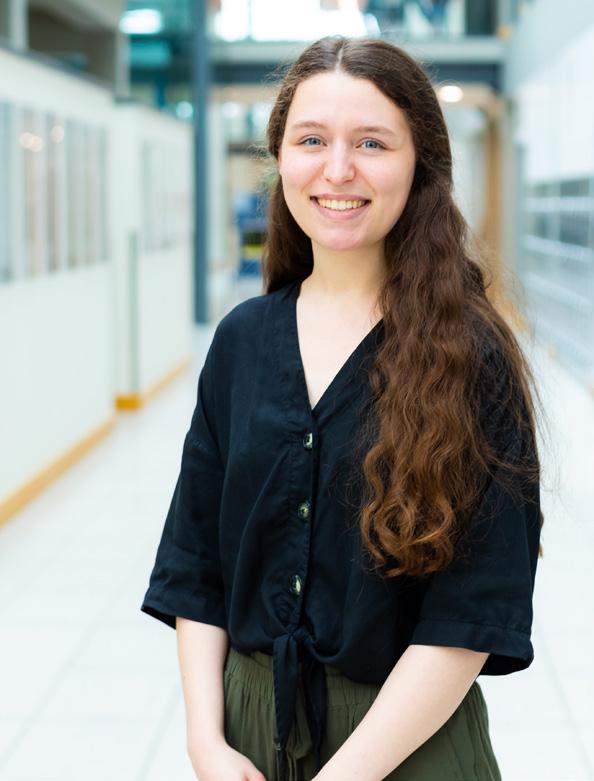
Check out the next page for a list of sectors and careers where graduates from Arts & Humanities are working – what career are you interested in?
Journalist
Radio Producer
TV Producer
Literary Editor
Publicist
TV Researcher
Multimedia Reporter
Community Editor
Content Creator
Digital News Reporter
Assistant Editor
Web Editor
Camera Assistant
Coordinator
Correspondent
Podcast Producer
Media Analyst
Commissioning Editor
Scriptwriter
Film Director
Theatre Producer
Museum Curator
Musician
Actor
Arts Manager
Event Manager
Gallery Curator
Archivist
Media Coordinator
Film Editor
Filmmaker
Art Buyer
Literary Agent
Festival Director
Creative Director
Education Officer
Teacher
Professor
Senior Civil Servant
Interpreter
Librarian
Administrative Officer
EU Policy Officer
3rd Secretary
Diplomat
Ambassador
Administrator
Public Affairs Officer
Project Officer
Principal Officer
Public Archivist
Policy Researcher
Speech Therapist
Translator

Completing your Arts & Humanities degree at UCD will equip you with the intellectual tools, keen judgement and critical skills which prepare you for a wide variety of career options across a diverse range of industries.
You have what is potentially the widest scope of career options open to you. Where will your Arts & Humanities degree take you?
Barrister
Solicitor
Strategic Advisor
Policy Maker
Programme Designer
Politician
Advisor
Public Affairs Officer
NGO Project Officer
Fundraiser
Legal Researcher
Legal Investigator
Technical Writer
Judicial Interpreter
Policy Analyst
Sustainability & Social
Impact Officer
Fundraising Executive
SEO Executive
Digital Marketing
Executive
E-commerce Specialist
Marketing Executive
PR Executive
Advertising Specialist
Market Researcher
Social Media Specialist
Community Manager
Copywriter
Insights Manager
Media Management
Production Coordinator
Project Coordinator
Communications
Manager
Business Manager
HR Executive
Director
Operations Director
Talent Manager
Recruitment
Innovation Design
Sales Executive
Project Assistant
Administrator
Brand Manager
Translator
Corporate Buyer
Retail Merchandiser
Corporate Trainer
Management
Consultant
Entrepreneur
CEO
You can find out more about volunteering at:
• studentvolunteer.ie/ucd
• ucdvo.org
• camara.org
• ucdsvp.ie
• svp.ie
• niteline.ie
• activelink.ie
• volunteer.ie
• ie.depaulcharity.org
• focusireland.ie
• aiesec.org
When hiring graduates, employers look for students who have built upon the skills and experience they gain through their academic studies by getting involved in activities outside the curriculum and engaging with the wider university community. For Arts & Humanities students there are a myriad of opportunities to get engaged and make a difference. For inspiration, check out what Megan, Alexandar and Keelin did during their time at UCD.

"I am currently working as a tax trainee at Grant Thornton, Dublin on the International Tax Team. I am on their graduate programme, which offers us the opportunity to pursue professional exams alongside working full-time.
Throughout my five years in UCD, I had the opportunity to improve my presentation and communication skills through a wide range of modules. I really enjoyed the choice of elective modules available such as accounting and project management. These allowed me to make new friends as well as develop new skills. I would highly recommend that undergraduates look at the range of elective modules available and pick ones that have nothing to do with your course because you will be surprised what skills you will learn and how they might influence what role you pursue in the future.
I had many enjoyable moments during my time in UCD. I was in the boat club where I was on the rowing squad. I was also in the equestrian club, as I did horse riding from a young age, and I thoroughly enjoyed the treks and cross-country lessons that we did with a local yard. I encourage undergraduates to join a new club or society even if they have never done the sport before.
I had to choose whether to go to Germany or France for my Erasmus and I couldn’t pick, so I put a range of universities from both countries on my application and I spent my Erasmus year in Nuremberg, Germany. The best way to learn a language is to fully immerse yourself in the culture and Erasmus allowed me the opportunity to do that. I had a great year trying new foods and new experiences and I would highly recommend Erasmus to anyone that has the opportunity to go.
In October of my final year, I applied for the Grant Thornton graduate programme and the following month I was awarded a place on the programme. This gave me great peace of mind for my final year, as I wasn’t worrying about what I was going to do after college. I highly recommend that students look into and apply for graduate programmes at the start of their final year to take the pressure off at the end of their degree.
A final highlight for me was achieving the UCD Advantage Award. This award recognises your personal achievements both inside the university and outside. I worked part-time in retail throughout the 5 years of my degree, which was quite tough at times alongside studying full-time and so it was nice to get the recognition for my hard work, not just towards my degree and the societies I was in but also the work I did off-campus."


"Following my BA, I pursued a career in law, and I am currently a solicitor at Ryans Solicitors LLP. A legal career was not what I saw in my future when I started in UCD but, in the end, it was a perfect fit. The skills you develop through an Arts degree–research, critical analysis, the formation and presentation of arguments–are fundamental to legal practice no matter what area of law you want to work in.
While I had found it very difficult to decide on a path for myself, I discovered that what I loved about my studies in classics and history–learning about the stories of people’s experiences and times–was mirrored in the study of law. Whether you are involved in court proceedings or assisting a client with their house purchase, you are often part of the most significant moments in someone’s life, which is endlessly fascinating and a great privilege.
There are so many opportunities in UCD which can help you develop your career, and not just academically. I was very involved in Dramsoc and, while I was not much for acting, it was one of the most enjoyable parts of college life which greatly boosted my confidence, to say nothing of the wonderful friendships made along the way.
My main advice would be to take the time to get involved and explore your options in UCD, particularly those outside your comfort zone and it may help you see more avenues for your future than you first thought."
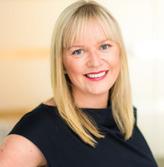

I am currently working as Talent Resourcing Specialist with Netwatch, where I manage the end-to-end recruitment and selection process across Ireland, USA, Northern Ireland, and UK.
Throughout my three years studying at UCD, I greatly developed my communication, presentation, and problem-solving skills through different modules that I had studied. Our lecturers and tutors always encouraged us to share our thoughts and ideas, and to work in groups/ teams to navigate through tasks and projects, which certainly equips you with the skills and experience to go forward in your professional career. My English degree enabled me to develop my writing and critical analysis skills – through reading books, analysing poetry etc., which has been greatly beneficial in my role today as I am in constant communication both in-person and via email, and reviewing and analysing documents and policies.
There have been many highlights for me during my time at UCD. One of the main highlights would be partaking in the Peer Mentor programme, where I provided assistance to a group of 10 first year Arts students – supporting them as they settle into college life and assisting them in fostering a sense of belonging to their academic programme.
Another highlight for me was being awarded with the UCD Advantage Award in my final year of my degree. This award recognises your contribution and participation in extra-curricular activities, in both your academic and personal life. The Advantage Award is a great way of showcasing your development to future employers during the interview process as the award recognises your achievements and involvement in teamwork environments, your leadership abilities, and your organisational skills in the professional field."
“The public affairs and communications landscape in Ireland is constantly changing. At Hanover, we look for students with proven backgrounds, including from Arts & Humanities. We seek skilled talent from those with backgrounds in history, political science, English and journalism who have a passion for current affairs.”
A degree in Arts & Humanities can take you anywhere. However, it can be hard to decide on a career path when there are so many career opportunities available.
Accenture is a global leader in Information Technology and Management Services. At Accenture, we harness the power of change to create long-lasting value in every direction for our clients, people and communities.
There has been widespread recognition of the importance of Arts & Humanities qualifications in sectors previously reserved for more traditional “business-friendly” degrees. At Accenture, we have diversified our intake of graduate students and experienced hires, to reflect the changing needs of our clients and the critical thinking and analytical skills so valued across our business.
Through our work in the Human Sciences Studio at our Dublin-based Global Innovation Centre, the Dock, we work to unlock the human and societal issues that underpin our clients’ business challenges. Fundamentally, the Human Sciences Studio works to understand the societal roles of identity and ethics to inform Accenture’s response to the changing needs of our clients.
The creativity and critical thinking engendered through an Arts & Humanities degree form a crucial part of this team’s delivery. Complementing this is our ongoing work in the field of Interactive, recently renamed as Accenture Song. Humanities graduates form a backbone of our recent joiners to this exciting new sector, working on an extensive variety of projects to connect industry expertise with ambitious, empathetic creativity.
Take a Career Readiness Module: HUM20010 and HUM20030 Career Readiness in Arts (HUM20010) and Career Readiness in Humanities (HUM20030) are career development modules designed to facilitate academic, personal, and career development, and to enable you to develop employability skills. Students gain an appreciation of how to navigate the graduate recruitment process, how to be effective in the workplace and how to take ownership of their career development.
Each Trimester we invite Alumni from Arts & Humanities back to UCD to talk about their career path to date. It’s a great opportunity to network, learn about careers in various sectors and hear how graduates applied the skills they gained in their degree to their chosen career. Previous alumni panels have featured graduates from sectors such as: NGOs and Charities, Marketing, PR and Advertising, Law, Public Sector, Arts and Media, and EU and international roles.
The Career Mentoring Programme is open to stage 2, 3 and 4 undergraduate Arts & Humanities students. Applications for the programme open in September, so check your e-mail and the Careers Network social media for more information. A mentor can help you clarify your career goals, develop your confidence and give you a rare first-hand insight into a particular role or sector. Each year we have mentors from a wide range of sectors including media and journalism, diplomatic services, politics, EU institutions, education, finance, arts and culture, marketing, data analytics, government and public relations.
Follow the Careers Network social media channels for details of all employer events taking place in Trimesters 1 & 2.

"The international skills I developed during the BA in International Modern Languages—especially through my Erasmus year—really helped shape my global mindset and cultural awareness. These experiences laid a strong foundation for my postgraduate studies, where I was class ambassador for a cohort of over 70 students from more than 14 different nationalities. Now, as a consultant working in supply chain management, I draw on these competencies daily—whether it’s collaborating with international clients, navigating diverse business cultures or supporting cross-border collaboration on complex projects."


"I graduated with a BA in English and History in 2021, and a Post Graduate Diploma in Communication and Media in 2021, and have gone back to make it an MSc in 2024.
I’m the Assistant Editor of Weekend Magazine at the Irish Independent. I look after much of the photo commissioning for Weekend Mag, along with the Q&A weekly interview, and will often have pieces in news or daily features. I also run the magazine’s social media. There are four of us on the magazine.
The Research and fact-checking skills developed in UCD, have been really helpful. We also got the chance, in college, to interview people, which was a great way to practise that skill. Additionally, I learnt how to edit audio which is a really beneficial skill to have.
The extracurricular activity that stands out the most to me during my time in UCD is my involvement with one of the campus newspapers, The University Observer. I can’t emphasise enough how well spent my time at The Observer was. I met fantastic people and gained experience that was really beneficial when I started working. My experience at university was a great way to learn from the (many) mistakes you are bound to make in a setting where they are not only accepted but expected.
I think students looking to get into journalism have a tough task as it’s one of those industries where there are always more candidates than there are jobs. Advice I wish I had when starting in college is to look at everything like an opportunity. Absolutely, get involved in student journalism, but also cast wide nets. Socialise, engage with your peers in a way that allows you to see worldviews different than your own, and try and have a varied and expansive experience in university.
You learn very quickly once you leave college that the time you have to learn is a luxury that you won’t get back."

"Like plenty of others, I chose to do an Arts degree out of the freedom it offered for my future. I harboured ambitions of being a writer, but didn't know if that was a 'real job', and chose to study English and Film out of my passion for both of these subjects. Somewhat to my surprise, my enjoyment of this course convinced me that I wanted to pursue a career in film production.
Breaking into the film industry after my graduation wasn’t easy, but after a year of odd jobs I started working in development with Samson Films, one of Ireland’s leading production companies, as a Development Assistant before being promoted to Head of Development two years later. This job was multifaceted, making me responsible for originating, acquiring and developing new projects in line with the company's vision. I supported several film and TV projects from development through to production, securing funding from financiers including Screen Ireland and Creative Europe MEDIA, and attended international festivals including Cannes, Venice and Berlin.
Today I am a freelance Development Producer and Script Editor, working for several companies across live-action and animated film and TV. I read, analyse and edit screenplays, working with writers, producers and financiers to get projects ready for production. I pitch projects to potential partners, and have been responsible for securing development funding for projects.
I have been working full-time in the industry for almost six years now, and have built up a strong network of people. Production companies are usually small in size, especially in Ireland, and I’ve always been surrounded by a close-knit staff so jobs can be hard to come by at first. It’s a tough gig at times, but it’s very exciting and rewarding to be surrounded by such great colleagues and to help a project go from script to screen.
I continue to use plenty of skills from college during my dayto-day work - most particularly creative writing and critical thinking – and the depth of insight which my course gave me into English Literature and Film Theory/History has been hugely helpful in working in development.
My recommendation to current students is have confidence in yourself, to be brave in trying out new things, and to say yes to opportunities that arise - both during and after your college experience. You never know where these might lead you."
Internships are growing in popularity, and in the current recruitment market, employers not only look for a good degree from a top university but professional experience as well. Doing an internship will help you gain insights into a particular career path which may help you sharpen your career focus, and you’ll have the opportunity to develop your skills.
Research shows that 31% of this year’s graduate vacancies will be filled by graduates who’ve completed work experience in the organisation, so doing an internship can also be your stepping stone to a graduate job (High Fliers Research).
With these benefits in mind, where can you find an internship that matches your interests?
MyCareer and the UCD Careers Network Internships Fair are great places to start your search, and you should also check out gradireland and Activelink (the Irish Network for Non Profit Recruitment). Many organisations recruit interns from all academic disciplines, so as an Arts & Humanities student, you could consider internships in a wide range of sectors, including management consulting, international business, finance, law or marketing.
But what if you can’t find an advertised internship that appeals to you?
The good news is that many hidden opportunities are waiting to be uncovered! The first step is to research where you might like to intern and make a target list. If you have a particular interest in the not for profit sector for example you could consult the Directory of National Voluntary Organisations on the Citizens Information Board website.
The next step is to talk to professionals working in your target organisations to gain insights and find out whether there are any potential opportunities. As well as using your own contacts, you can make new connections at professional events and by using LinkedIn. A great place to start is by tapping into the UCD alumni network on LinkedIn. And remember, the key to sourcing the internship you want, is to be patient and talk to lots of people.
BA Humanities students have the opportunity to do an academic internship in Stage 3 of their programme. These internships broadly reflect the different skills and knowledge you acquire during the first two years of your degree, allowing you to pursue new or long-standing interests and to apply your learning in real-world situations. It will enhance core skills, attitudes and competencies that are not only fundamental features of your degree programme but are also transferable to a wide variety of roles across the private, public and NGO sector. The Internships and Employability Manager for Humanities will assist students throughout the process.

"Having completed an Arts degree in English and Art History with UCD, I was unsure what road to take. I knew I loved writing, brainstorming and researching, and was keen to pursue a career in content. A post-graduate internship in Web Summit led to three years working on their speakers team, producing content for conferences around the world. I then worked across award shows, communications and events for companies like The Drum and The Irish Film and Television Awards, before finding myself at Verve, where I’m now a Senior Event Manager. Verve is an events agency based in Dublin, with offices in London and Amsterdam.
In my role, I oversee the entire lifecycle of an event. We pitch a number of creative ideas to our client, for them to review internally. Once the event is given the green light, I’ll work closely with the client and our internal team of managers and account directors to bring it to life. Events I’ve produced range from brand activations, live music shows, award shows, internal events, conferences, video shoots and virtual broadcasts, for companies and brands such as Guinness, Google, Boston Scientific, TikTok and more.
During live events, I am the main point of contact for our client and for all suppliers, ensuring everything runs smoothly, according to schedule and - most importantly - that all attendees are having a great experience! Event days are my personal favourite part of the job. You’re on your feet, making quick decisions and working with a variety of interesting people from all walks of life.
One of the best parts of working in my field is travel. I’ve been given the opportunity to visit so many amazing countries.
While the path from my degree to my current role is not exactly linear, my experience studying English and Art History has proved invaluable. Being a good writer, researcher and a clear communicator is paramount in any client-facing role. I developed critical thinking skills and the ability to review content and copy efficiently as a result of my English degree, and studying Art History has provided me with a great framework when it comes to working with creative teams on anything visual. I was involved with the L&H and LitSoc during my time in UCD. Organising society nights, debates and more gave me a good head start in the world of events.
One of the best pieces of advice that I can give is to lean on the great resources available to you in UCD. When I was in my final year, my tutors and lecturers were a wonderful source of advice and insight, and they really helped me get my footing in the working world. Also not to be taken for granted is the value of the friends I made - we supported each other through long days in the library and continue to do so now in the real world."

Traditionally graduate programmes existed in a small number of large professional, banking and consulting firms. However, in recent years organisations across a diverse variety of sectors, from Paddy Power to the Peter McVerry Trust have developed graduate programmes that are open to students across all disciplines.
So what exactly is a graduate programme?
Essentially, it’s a structured training programme transitioning you from university to professional working life in an organisation. Throughout your programme you receive specialist training relevant to the sector you are working in, as well as support to pursue professional exams (if applicable).
Graduate programmes
Some programmes include rotations, for example on a 24-month programme you might have 4 rotations of six months' duration, across different areas of the business. This allows you to experience different departments and get involved in a variety of projects. Is it for me?
Firstly, consider where your interest lies. Are you interested in HR or Marketing? Are you interested in Public Policy or working in the EU? Also, consider which sectors you are interested in: would you like to work in Retail, ICT, Research, Journalism or with a Government body? Companies such as Aldi, Lidl, Musgraves, Jameson, Vodafone, Amazon, ESRI, CSO, GLG, Salesforce, Enterprise Ireland, Focus Ireland, Trócaire, IBEC, An Post, daa and IDA offer graduate programmes across a number of departments including HR, Digital Marketing, Business Planning, Business Analytics, Communications and Policy Development.
Next steps
Start your research online by checking company websites, MyCareer and gradireland. Take a look at For Purpose (www.forpurpose.ie) for graduate programmes in the not for profit sector. Once you have a clearer idea of your interests, the best way to find out more is to talk to people. Build your network by attending the Careers Network Recruitment Fairs and employer events. Come to our Alumni panel series and meet the College of Arts & Humanities graduates working across a range of sectors.

Sarah Hall, BA Drama & English
"When I first started studying English & Drama at UCD, I had no idea what I wanted to be “when I grew up”. I considered teaching because it seemed like a logical career path; however, I had no idea how my time at UCD would disrupt that logic and I never dreamed that years later I would be writing this as the Deputy General Manager of the Gaiety Theatre in Dublin.
Working in theatre is a fast-paced environment and no two days are ever the same. By working with producers, actors, crews & front of house teams, I get to experience every aspect of live entertainment and venue management on a daily basis.
While my degree gave me a multitude of skills that I use every day--like the ability to have in-depth conversations on Ulysses or Marina Carr--I really cut my teeth in UCD student societies.
My fondest memories are 4am starts (and finishes) in O’Reilly Hall for the UCD Community Musical, an event that I was lucky enough to be involved with in various capacities from the early days of West Side Story right through to Jesus Christ Superstar in 2013. I still meet industry professionals who worked on those productions, along with fellow students who have followed their footsteps to this day, and the experiences we shared have been invaluable to our careers.
I would not change anything about my time at UCD and I would absolutely advise everyone to look beyond the lecture theatres and discover everything that UCD can offer, as other students, staff, clubs and societies are what can give you an entirely different perspective on your future."

"I work on a small team of four, including researchers and administrators. I am primarily involved in leading qualitative research design and analysis. The project I work on is called the National Further Education and Training Learner Forum – a large, mixed-methods research project that gathers feedback from thousands of adult learners each year, through focus groups and surveys. In my role, I analyse qualitative data that comes from focus groups and help to develop this into research reports and education policy recommendations.
During my PhD in English at UCD, I gained expertise in academic writing, research, and making research findings accessible for different audiences. These are skills I put to use daily in my current role as a Research Officer. I am also currently training as a psychotherapist, and the research, analytical, and academic writing skills I developed through my graduate studies at UCD gave me a solid base from which to pursue this path. Value the Arts and Humanities; a graduate qualification in this discipline can prepare you for work in a diverse range of industries and help you develop invaluable critical thinking skills that will serve you throughout your life."
UCD Careers Network is unique in Ireland as we have a dedicated Career and Skills Consultant for Graduate Research students.The service provides:
• Confidential 1-1 (60 minute) coaching/career guidance sessions, to discuss career options, job search, interview preparation
• 1-1 (30 minute) CV/Application review sessions
• Regular group workshops on applications, interviews and networking and more
• Bespoke delivery of workshops and seminars within Schools
• Alumni and employer networking opportunities
• Regular e-bulletin focusing on training and development opportunities and curated list of job vacancies
You can read about these services in more detail on the website
As a Graduate Research student you have access to the Early Career Researcher pages on our career management platform MyCareer. MyCareer has a wide range of resources including interactive tools, such as AI CV review and interview prep, e-learning content and the latest job opportunities. MyCareer is where you can also book one-to-one appointments, workshops and events, and review resources such as recordings of all our Early Career Researcher alumni events. You can come and see us anytime, it is never too early to start thinking about your career. You can also avail of our 1-1 service up to two years post graduation.
Please click on this link to find out more about doing a PhD in UCD.

As the Graduate Research Student Career & Skills Consultant, Ms Tara Hughes focuses on the mobility and competitiveness of Research Masters and Doctoral Candidates beyond the PhD. She works with individuals and groups on planning how to find meaningful and rewarding careers. She does so by delivering a programme of professional skills training, 1-1 guidance and employer networking opportunities to enhance researcher competitiveness in a global environment.
In her previous role Tara worked as the Research Careers Manager (for Postdoctoral Staff & Research Fellows). Prior to that she was on the People and Organisation Development team in UCD HR developing programmes for Assistant Professors and new faculty. Her background is in Learning & Development, Organisation Development and as a HR Business Partner. She is a member of AHECS, AGCAS and the Association for Coaching. She is a UCD EDI Ambassador.

We are open Monday to Friday from 9am to 5pm.
You can find us on the corner of the James Joyce Library building; we have our own entrance next to the Campus Bookshop and opposite the main lake. The library building is no.34 on the Belfield Campus Map.
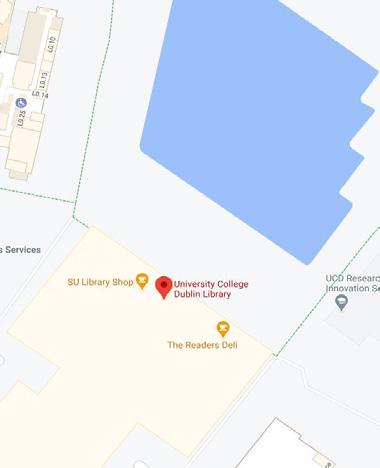
UCD Careers Network
Library Building
University College Dublin Belfield, Dublin 4 Ireland
Tel: +353 (0)1 716 7574
Email: careers@ucd.ie


How employable do you think you are?
CareerEDGE+ is a personal development tool that should help you to identify possible areas for development over the next year.
1) Take the CareerEDGE+ profile quiz 2) View your personalised CareerEDGE+ report
3) Complete the allocated tasks in your report, to develop your employability
GET STARTED TODAY!
